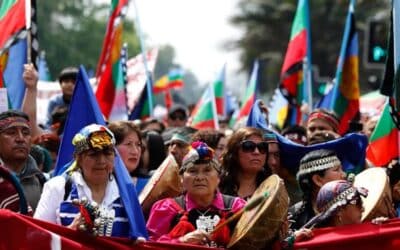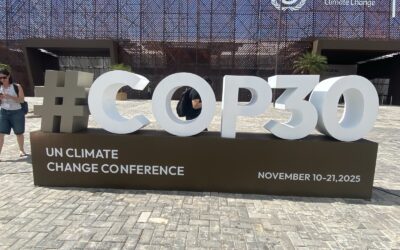by Jeanette Sequeira
Whilst news headlines are focused on the negotiations and government delegations at the COP21 in Paris, there are other important dialogues taking place with more potential to effect real change. Behind the scenes and away from the spotlight a vibrant gathering of civil society from around the globe is mobilising. Hundreds of diverse people, non-government organisations, civil society and community organisations, international networks and social movements are coming together in Paris to defend climate justice and advocate for real change that addresses the social and economic consequences of climate change.
One can find events, actions, exhibitions, workshops and panel discussions on an array of important issues at the People’s Climate Summit (sommet citoyen pour le climat), 5th-6th December, and the Climate Action Zone (zone d’action pour le climat), 7-11th December. There are also poster-making areas, numerous exhibitions presenting small-scale and community-led renewable energy inventions, and photo exhibitions, for example, portraying communities’ struggles and protests against past climate change negotiations and policies.
In these spaces groups are discussing climate change issues and alternative solutions that really matter at the grassroots up to the regional, national and global levels. Activists are also calling upon communities to harness their voices and power and to act in solidarity.
There are strong calls for a counter ethics and a counter politics that challenges the status quo of the climate strategies being negotiated at the COP21. Whether it is the testimonies by front-line communities and peasants in the South or the judgements delivered by the International Rights of Nature Tribunal, there is a resounding message of ‘change the system and not the climate’ that can be seen and heard throughout the People’s Climate Summit and the Climate Action Zone.
While there are also organisations that are proponents of false solutions to climate change we also see a great number of people gathering to discuss viable alternatives that are already happening in communities worldwide and how to continue mass mobilisation for climate justice.
Whether at the panel discussions, during public actions or in the corridors and the daily general assemblies at the Climate Action Zone, the people are calling for community-led strategies, such as, decentralised energy systems at the community level shifting away from monopolistic multinational corporations, decarbonisation strategies that acknowledge inequities between North and South, just energy transition that considers workers, rejection of corporate capture of the climate, Indigenous peoples rights, traditional knowledge and practices, food sovereignty, gendered understandings of achieving climate justice and living and sourcing locally, to name a few.
In recognition of the importance of these public spaces outside the COP21 negotiations, Global Forest Coalition (GFC) along with its networks including Climate Space and Biofuelwatch, have presented and campaigned at the People’s Climate Summit and Climate Action Zone. We are also raising awareness at these events about deforestation and the devastating impacts of climate change on women, land use and land use change and forestry (LULUCF), Indigenous peoples and local communities as well as spreading awareness on myths and false solutions such as bioenergy. Many of these issues and perspectives are not often covered in mainstream media and therefore can be refreshing and informative to the everyday people that come along to these events.
One thing is certain, the real action and solutions for climate change and climate justice is being discussed on the ‘outside’ – amongst the people, the communities and civil society – and not on the inside in le Bourget. ‘If any change is going to happen it is going to happen at the local level, we all know that’, as Isis Alvarez from Global Forest Coalition emphasises during a talk about the Corporate Capture of the Climate.
In line with the calls being echoed here in Paris for bottom-up, participatory approaches to address climate change, is GFC’s Community Conservation Resilience Initiative (CCRI). Implemented by the communities themselves, this initiative seeks to identify and document the different types of support (legal, economic, social, policy) that Indigenous peoples and local communities worldwide need to strengthen the resilience of their community conservation initiatives. Such enhanced support would help them to conserve and restore biodiversity and forests and continue their community strategies for addressing climate change.
For a just climate deal that represents the views of the people from the north and south, governments inside le Bourget ought to engage and listen to the calls for systemic change and alternative solutions that are being presented outside from the people and their communities.
Credit photo: Jeanette Sequeira




